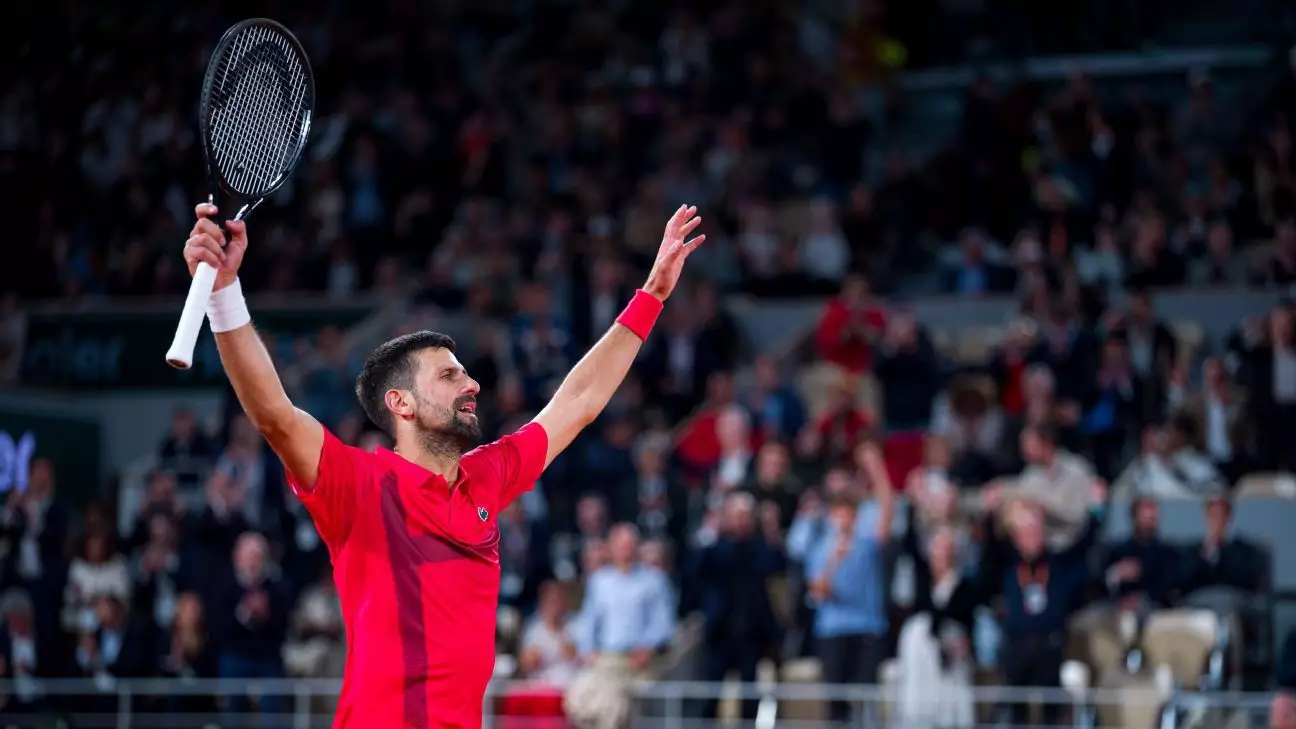In an era rife with skepticism about age and peak performance, Novak Djokovic is dismantling preconceived notions with his extraordinary display of skill and tenacity. His milestone of claiming a 100th title in Geneva just prior to the French Open raised eyebrows, yet few positioned him as a frontrunner at Roland Garros, given his 38 years of age. However, Djokovic defied expectations with a remarkable victory over Alexander Zverev, reaffirming his status as a tennis titan. This not only marks a stunning return to form for the Serbian star but also sparks conversations about the limits of experience, determination, and the refusal to bow out gracefully.
Adapting in Adversity
From the outset of the quarterfinal match, Djokovic faced immediate challenges, yielding an early service break to Zverev. Such a scenario could rattle any competitor; yet, Djokovic, ever the tactician, rose to the occasion by altering his approach. By changing his racket, he signaled a commitment to regain control, a move that was emblematic of his strategy throughout the match. His service game, initially shaky with a mere 52% success rate, transformed dramatically. Once he settled into his rhythm, he clinched the second set with a staggering 76% of first serves going in, showcasing his ability to adapt and compete fiercely under pressure.
Mastering the Art of Control
What sets Djokovic apart is not merely his physical prowess but his cerebral approach to the game. While Zverev struggled, particularly with second serves — claiming a dismal 33% in the second set — Djokovic showcased his mastery with precision. Employing a diverse arsenal, he expertly mixed his pace and placement, executing drop shots with surgical precision. Ultimately, he unleashed a staggering 35 drop shots throughout the match, showcasing his tactical variations. Each drop shot not only disrupted Zverev’s rhythm but forced him into moments of indecision that unraveled his confidence.
The Road Ahead: Unyielding Challenges Loom
As Djokovic gears up for an encounter against world No. 1 Jannik Sinner in the semifinals, the stakes escalate further. This impending match is not merely a battle of rankings; it tests the very essence of Djokovic’s legacy. Despite having previously conquered formidable foes, the path ahead appears merciless. Should he best Sinner, the daunting specter of facing Carlos Alcaraz, world No. 2 and the reigning prodigy, looms large. Historically, Djokovic must defy odds that suggest no player has triumphed by defeating the world’s top three players consecutively. The enormity of such a challenge cannot be understated, yet Djokovic thrives in high-stakes environments — this very intensity may serve as his ultimate catalyst.
History and Legacy: A Defining Chapter
Djokovic’s current pursuit is not just a quest for another Grand Slam trophy; it is a chapter that could further define his legacy in the pantheon of tennis greats. His resilience in the face of adversity makes him not just a contender but a compelling story of redemption and fortitude. The narrative of his career thus far weaves together a tapestry of formidable highs and lows; yet, it’s this tenacity that continuously pulls him back into the spotlight. Each match Novak faces is more than an athletic contest; it’s a testament to the human spirit’s capacity for persistence against the relentless march of time and competition.
In a sport that often positions youth as a key determinant of success, Djokovic’s journey is an ongoing disruption of that narrative. He is a living embodiment of the idea that greatness knows no age. As much as tennis lovers relish the thrill of his matches, they also find an inspiring metaphor in Djokovic — that spirit and hard work often eclipse the barriers posed by time. The journey ahead in the French Open is poised to be filled with both peril and promise, making it an electrifying chapter in an already storied career.

